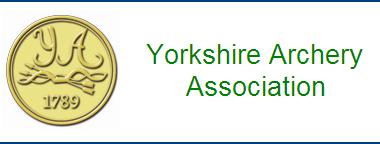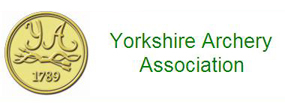About coaching
Aims and objectives
YAA Coaching provides training for archers who wish to become coaches, and supports the continuing professional development of coaches.
GNAS mission statement
The Grand National Archery Society's Coaching Organisation will provide world class coaching to all members of the Grand National Archery Society.
Coaching structure: coach training courses.
Coach training is currently under redevelopment, and there will be many changes over the next 2-5 years, all of which are designed to raise the standard of coaching, yet make it easier to manage and assess, so that more people can take up training. Currently there are four levels of qualification within GNAS, and one for non-GNAS people such as leisure centre staff, scout leaders etc.
Community Sports Leader Award
This is now only available to non-GNAS people wanting the industry minimum standard qualification that is required for employment or voluntary work in places such as holiday centres, youth organisations and sports centres. It is a Sports council award delivered and administered by GNAS. The course is 25 hours tuition minimum plus a practical exam of around half a day.
Level 1
This is the entry level to coaching for GNAS members, designed for coaches who will mainly be working on beginners courses and have a go's alongside more experienced coaches. The tuition time is approximately 30 hours over a period of usually 3-6 months, followed by a period of supported practice at the candidate's own club, then an internal and external assessment.
Assessment is mostly in course by observation, work record, assignments and a portfolio of evidence, with some elements assessed internally, and some assessed externally also. The course content has been designed to fit into the new National Coaching Framework and incorporates the generic units in an archery context. It will be based around:
 Teaching and Coaching archery - including barebow and freestyle, techniques suitable for teaching to beginners
Teaching and Coaching archery - including barebow and freestyle, techniques suitable for teaching to beginners
 Health and Safety, including Child Protection
Health and Safety, including Child Protection
 Equipment knowledge - maintenance and set up, basic recurve, awareness of compound and longbow styles; also range equipment and set up
Equipment knowledge - maintenance and set up, basic recurve, awareness of compound and longbow styles; also range equipment and set up
 Sports science - including anatomy, physiology, psychology, sports injury, first aid - all at a basic level
Sports science - including anatomy, physiology, psychology, sports injury, first aid - all at a basic level
 Personal development - including evidence portfolio, practical work record, assignments, training records, assessment records.
Personal development - including evidence portfolio, practical work record, assignments, training records, assessment records.
 Communication skills
Communication skills
Coach level
This is the grade at which instruction moves into coaching, which are different activities. The course content is quite detailed and complex, but some units can be gained at Assistant coach level and do not have to be re-examined. Candidates must have been a GNAS member for two years at the time of the exam and must be senior members of GNAS (over 18). Currently there are two methods of assessment, final 2-day exam, or intermediate assessment of 3 of the units with a one-day final exam. In both cases a portfolio of evidence is required, to include assignments and test papers completed during the course. Courses are a minimum of 60 hours tuition, often split around the summer months so that these are free for candidates to practice their skills on unsuspecting beginners and novices. The content may sound the same as at other levels, but will be at a greater level of depth. It will include:
 Demonstrating and teaching basic techniques, barebow and freestyle
Demonstrating and teaching basic techniques, barebow and freestyle
 Knowledge of own technique and equipment - ability to shoot consistently at 20 yards as a minimum requirement with a recognised and developed technique, plus detailed knowledge of own bow set up and tuning
Knowledge of own technique and equipment - ability to shoot consistently at 20 yards as a minimum requirement with a recognised and developed technique, plus detailed knowledge of own bow set up and tuning
 Equipment maintenance, including string making
Equipment maintenance, including string making
 Set up and tune equipment - all disciplines - basic and intermediate
Set up and tune equipment - all disciplines - basic and intermediate
 Anatomy and Physiology - knowledge of muscle and joints used in archery - their structure, correct usage, training and prevention of injury; also associated exercises for warm up and cool down; basic bio-mechanics
Anatomy and Physiology - knowledge of muscle and joints used in archery - their structure, correct usage, training and prevention of injury; also associated exercises for warm up and cool down; basic bio-mechanics
 General knowledge of archery - insurance, range layout , rounds, incentive schemes, handicap and classification, forms of archery including indoor, outdoor, target, field, clout, flight
General knowledge of archery - insurance, range layout , rounds, incentive schemes, handicap and classification, forms of archery including indoor, outdoor, target, field, clout, flight
 Analysis of technique and development of the archer through identifying weaknesses and suggesting ways of improving
Analysis of technique and development of the archer through identifying weaknesses and suggesting ways of improving
 Generic sports coaching courses provided by ScUK, delivered by GNAS coaches
Generic sports coaching courses provided by ScUK, delivered by GNAS coaches
 Basic sports psychology - goal setting, relaxation, performance theories
Basic sports psychology - goal setting, relaxation, performance theories
 Child protection - ScUK course
Child protection - ScUK course
County Coach - to be rewritten at Level 3
This has always been classed as the "career" grade in coaching, but there is less specific course content than at lower levels. This will be addressed as the new courses develop. County coaches are deemed to be organisers, managers and public relations people as well as coaches, but the training should give a sound basis for developing into higher level performance coaching and coach training. Candidates must have completed Coach level, and should have had two years experience at this level by the time of the exam, though in exceptional cases some people have continued straight on from coach to County. The tuition time is 60 hours minimum, with much expected in practical experience outside the course. Assessment is currently by a 2-day practical exam with a one hour written paper, which from August 2005 will be carried out centrally at Lilleshall each year. Candidates will be entered once a full internal assessment has been successfully completed. A portfolio of evidence with detailed training and coaching records is required. Course content varies dependent on candidates' strengths, but will always contain:
 In depth analysis of archer's equipment set up and tuning - all disciplines
In depth analysis of archer's equipment set up and tuning - all disciplines
 In depth analysis of technique
In depth analysis of technique
 Developing improvement programmes for archers observed and analysed - to include all aspects of physical training, shooting, technique development, equipment tuning, psychology.
Developing improvement programmes for archers observed and analysed - to include all aspects of physical training, shooting, technique development, equipment tuning, psychology.
 Sports psychology - relaxation techniques, imagery, mental rehearsal, advanced performance theories, advanced goal setting, attentional focus, mood control, coping strategies, positive affirmation for building confidence.
Sports psychology - relaxation techniques, imagery, mental rehearsal, advanced performance theories, advanced goal setting, attentional focus, mood control, coping strategies, positive affirmation for building confidence.
 Anatomy and Physiology - although not separately examined greater in depth knowledge will be expected - training will include more on analysis of movement (bio-mechanics) nutrition, physical structure and how this affects technique, flexibility, developing strength, physical training principles.
Anatomy and Physiology - although not separately examined greater in depth knowledge will be expected - training will include more on analysis of movement (bio-mechanics) nutrition, physical structure and how this affects technique, flexibility, developing strength, physical training principles.
 Communication skills - this involves delivering a ten minute talk with visual aids as part of the exam, so training is given through practical contexts.
Communication skills - this involves delivering a ten minute talk with visual aids as part of the exam, so training is given through practical contexts.
 Assignments and test papers on a range of topics as practice for the exam, as well as checking knowledge, understanding and application of knowledge.
Assignments and test papers on a range of topics as practice for the exam, as well as checking knowledge, understanding and application of knowledge.
Senior Coach (previously known as regional)
This grade is trained at national level. The training takes around 21/2 to 3 years and usually takes place at Lilleshall National Sports Centre. The course content develops continuously to respond to demands from Sport UK and other sport management organisations. Content is likely to cover:
 Anatomy - muscles, joints, structure, usage,
Anatomy - muscles, joints, structure, usage,
 Physiology - in depth, including bone, muscle, blood, nerve structure, neural systems, nutrition, exercise physiology
Physiology - in depth, including bone, muscle, blood, nerve structure, neural systems, nutrition, exercise physiology
 Training - all principles of physical training and conditioning
Training - all principles of physical training and conditioning
 Bio-mechanics
Bio-mechanics
 Psychology - developing performance psychology; peaking performance; psychology of teams; coping strategies
Psychology - developing performance psychology; peaking performance; psychology of teams; coping strategies
 Sport and the law
Sport and the law
 Sport and Sociology
Sport and Sociology
 In depth case study over 6 months of an archer and the candidate's coaching of them
In depth case study over 6 months of an archer and the candidate's coaching of them
 Developing teams and squads
Developing teams and squads
As you can see, the higher you go, the longer it takes - which is what you would expect.
If anyone is interested in coaching training at any of these levels, please contact me for further details.
Kath Fitzpatrick
 Yorkshire CCO
Yorkshire CCO
 NCAS RCO
NCAS RCO
 GNAS Senior Coach
GNAS Senior Coach
 01226 218518
01226 218518






 Webmaster
Webmaster